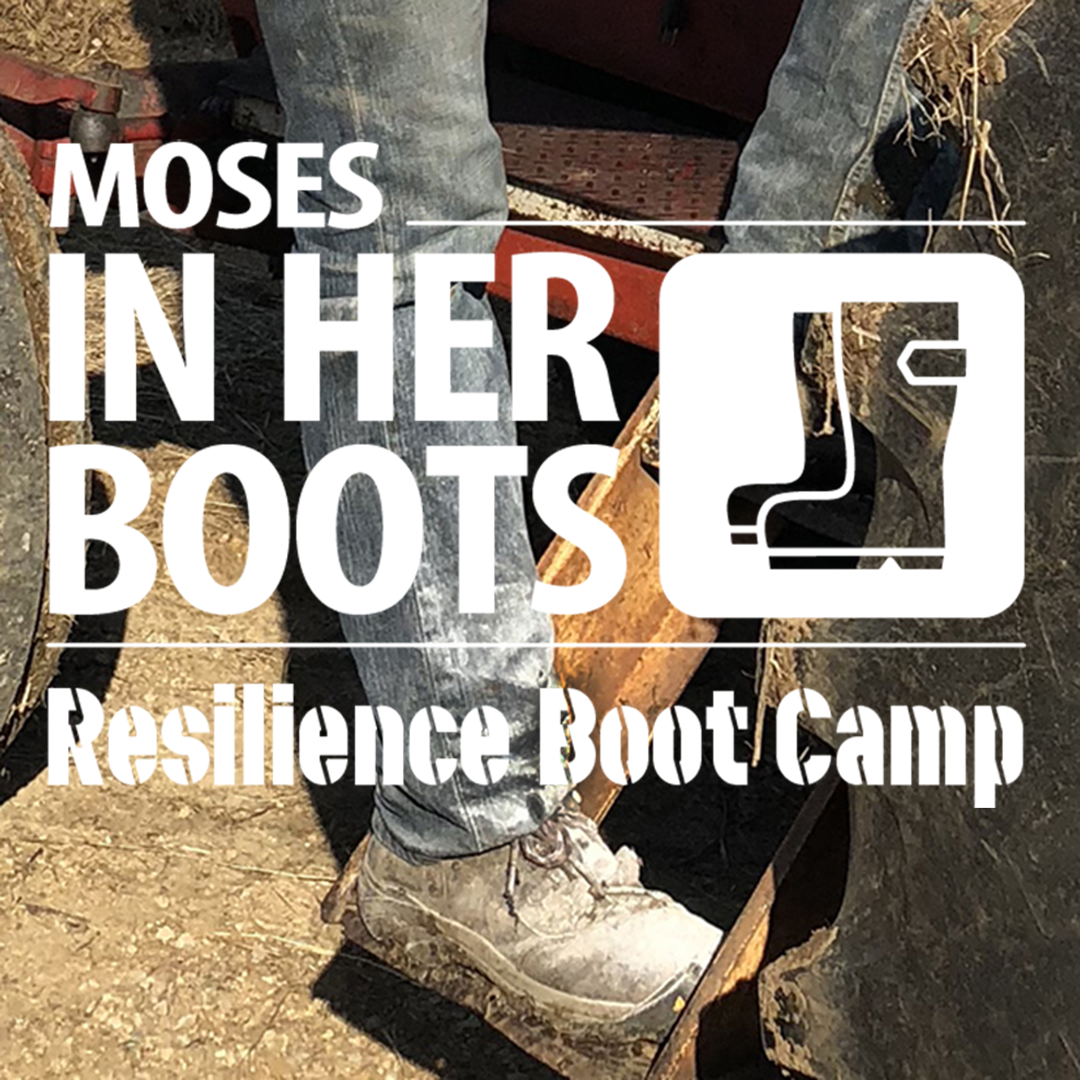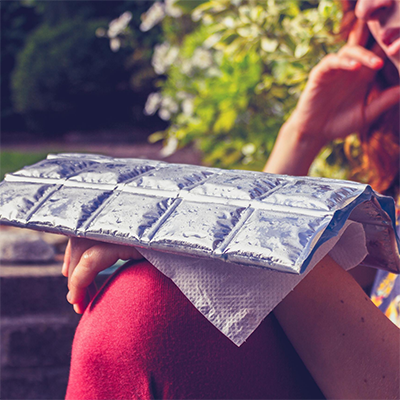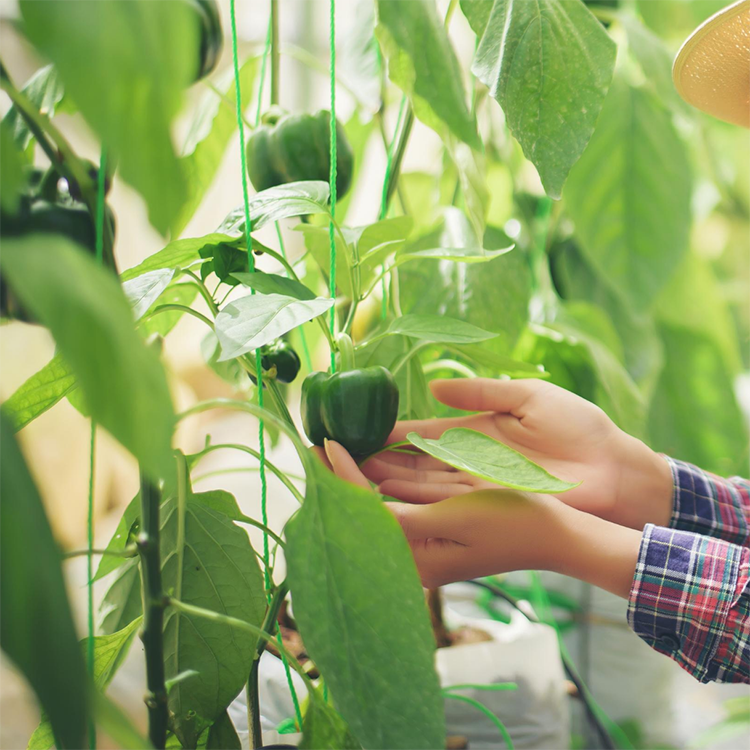|
|
 |
|
|
|
|
|
|
Week 4: Taking Care of Your Body |
|
|
|
Welcome to the fourth week of our Resilience Boot Camp. This week, we focus on how to take care of the most important tool on our farms: our own bodies. It’s all too easy to mindlessly push forward and not pay attention to our physical selves until injuries crop up. How can we add that element of mindfulness Venice Williams shared in Week Two to caring for our bodies for farming long-term? Thanks to all who joined in for our webinar last week with Charlotte Smith on time management and Priorities. If you missed it, you can watch the recorded video here. Good insights to help you establish a routine that prioritizes YOU! Feel free to post on our Facebook group to share with our women farmer community. Share what you're doing to build resiliency in your life, ask questions to get input from other women farmers, show what's growing on your farm, or react to this week's podcast. This is your group—make it work for you! Lisa Kivirist, MOSES In Her Boots Coordinator |
|
|
|
Take Better Care of Your Body
By Laura Gosewisch Farmer, Canner, & Massage Therapist 1. Problem solve. Whenever we see a problem with our plants, we go into problem-solving mode and think: What can I do to make this better? What can I do to prevent this from happening again? But it's rare that we turn that same level of curiosity onto ourselves. If we have pain, we go to blame or shame and think that something is wrong with us, not that it's some type of stressor that we simply need to manage. |
|
|
|
2. Remember balance is active. Unspoken expectations tell us that at some point we will be fully balanced and done. But think about the act of balancing on a balance beam as you're constantly working, constantly moving in ways to adjust and keep your balance. Think “balancing” instead of “balanced.” Embrace the work of figuring it out as we go and turning our attention toward our bodies. 3. Placement is important. Place items as high as possible so you're not doing a lot of leaning down and lifting or twisting. A load-bearing twist has one of the highest propensities for injury. If you were to take a dozen jars from a shelf to your left, you want to face your torso to where you're lifting instead of just turning, lifting, and then bringing it back. 4. Know a strain versus a sprain. Strains and sprains temporarily change the functionality of our muscle and connective tissue A sprain is something that happens to a ligament, which connects bone to bone. Muscles and tendons experience strain, they are more easily healed because we have blood flow incorporated in the affected structures. Sprains end up taking more time to heal because you don't have the blood flow that helps facilitate healing. You really do need to just stop and rest the tissues that have received a sprain. Ice would be the ideal first aid for both strains and sprains at the time of an injury. 5. Adjust expectations. We’re working in an industry that is built for men, and we, as women, get accustomed to trying harder and we just think that this is how it is. But be able to step back from the expectations and say, "I have needs; I am worthy and I'm worth stopping for." It’s an act of empowerment to say, “I need this and you probably do, too.” Other people are just as unaware of what they might need, and it could be you that makes the difference. |
|
|
|
|
|
Podcast:
Laura Gosewisch on Taking Care of Your Body While Farming Listen in for more from Laura Gosewisch this week on our Resilience Boot Camp podcast series. She talks about how her personal experiences and health challenges led to her passion for helping farmers better understand and care for our bodies. As Laura aptly puts it, we need to remember to "calibrate the compass of life" to keep our health in holistic check. |
|
|
|
|
|
|
|
|
|
Resilience Tips from the Field |
|
|
|
 |
Laura Gosewisch
Vital Ground Farm “Heat and cold therapies facilitate circulation to manage pain and promote healing. Blood flow is a necessary component to the healing process, and when we can identify our body’s needs we can care for ourselves effectively. Here are the basics you need to know:
- Heat promotes circulation, eases soreness, achy muscles, restricted movement.
- Cold slows circulation, prevents swelling, eases sharp pain or pain from trauma.
- Apply for up to 20 minutes at a time, use extreme caution if you are putting your weight on the pack; sitting or laying on the pack or applying it for a long period of time increases the risk of injury.
- Allow yourself time to relax and do nothing while applying these therapies, close your eyes, and practice noticing your body.
- Drink a big glass of water when you are finished.”
|
|
|
|
|
 |
Lynn Trizna
Rodale Institute's
St. Luke’s Organic Farm “The best thing you can do for yourself as a farmer is to be adaptive. Use your mistakes as an opportunity to try something new. On our farm, which is managed day to day by only two women to provide food for healthcare workers and hospitals when they need it most, it’s easy to put too much pressure on ourselves. We had one field this season that was scattered with transplants that didn’t take, leaving holes in our rows. Instead of fretting about the lost revenue and product, we decided to plant marigolds in the open spots. Now we’re able to include more edible flowers in our farm shares, we’ve created more resources for pollinators, and we can donate flowers to the hospital kitchens. The beauty of two women working together to create a system that doesn’t always work perfectly, but works for us, is something to cherish." |
|
|
|
|
 |
Megan Schossow
Upper Midwest Agricultural Safety and Health Center "What's the most valuable asset on the farm? The people. While out doing regular chores and tasks, we may be repeating motions or postures that can gradually wear on the body. These pains or injuries, or musculoskeletal injuries caused by repetitive motion, can sideline you, but can also be prevented. A few tips for staying in tip top shape:
- Wear good footwear with enough cushioning.
- Rest between and during active jobs.
- Place commonly used items at or below shoulder height.
- Listen to your body."
|
|
|
|
|
|
|
|
Recipe for Resilience:
Energy Bites Each week, we share a change-of-taste recipe that blends healthy nutrition and seasonal vegetable abundance with a dash of simplicity. This week, Noreen Thomas of Doubting Thomas Farms in Morehead, Minnesota, shares her recipe for Energy Bites. She hands these out at farmers markets to give customers new ideas for using her oats. Ingredients: 1 cup (dry) oatmeal (Noreen recommends old-fashioned oats) 1/2 cup peanut butter 1/2 cup semisweet chocolate chips (or vegan chocolate chips) 1/3 cup honey or agave nectar 1 teaspoon vanilla extract Mix together and form balls. Chill for an hour before eating.
Great for families on the go! |
|
|
|
|
|
|
|
She’s Got Your Back: Tap into a Support Network
Tuesday, August 18
1 – 2:15 p.m. CDT With Denise O’Brien
Rolling Acres Farm |
|
|
|
|
|
|
|
|
|
|
|
|
|
Contact Us info@mosesorganic.org | 1-888-90-MOSES |
|
|
|
|
|
|
|